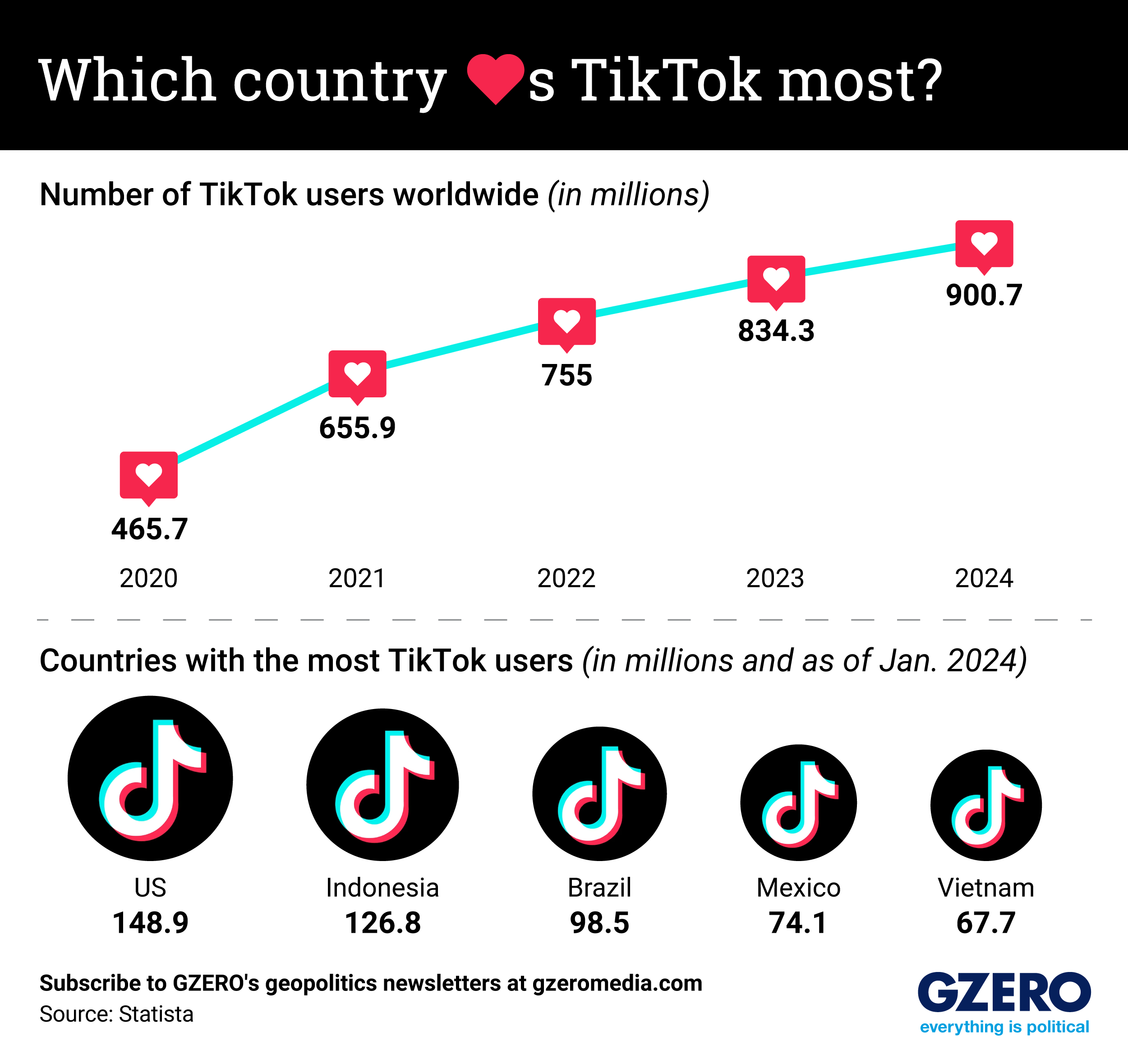March 24, 2024
TikTok has taken the world by storm over the past few years, growing its global audience to a whopping 900 million users and counting. You can find a wide array of video content on the app, ranging from people cooking, dancing, and pontificating to breaking news and political drama. It can be quite addictive.
Meanwhile, politicians in Washington continue to raise the alarm about the potential national security risks of the app, which is owned by the China-based company ByteDance. The US House of Representatives recently voted to ban TikTok if its Chinese owner doesn’t sell it, and we’re waiting to see whether the Senate votes on the measure. But many American users seem unfazed by the political discourse as the US boasts the most users – nearly 150 million – of any country in the world.
Should people be more concerned about the Chinese government spying on them through TikTok?
More For You
Prime Minister Narendra Modi, with President of the European Council António Luís Santos da Costa, and President of the European Commission Ursula von der Leyen, at Hyderabad House, in New Delhi, India, on Jan. 27, 2026.
DPR PMO/ANI Photo
On Tuesday, the world’s largest single market and the world’s most populous country cinched a deal that will slash or reduce tariffs on the vast majority of the products they trade.
Most Popular
Sponsored posts
Five forces that shaped 2025
What's Good Wednesdays
What’s Good Wednesdays™, January 28, 2026
Mexican President Claudia Sheinbaum Pardo stands alongside Canadian Prime Minister Mark Carney and US President Donald Trump during the 2026 World Cup draw at the John F. Kennedy Center for the Performing Arts in Washington, D.C., on December 5, 2025.
Deccio Serrano/NurPhoto
Canadian Prime Minister Mark Carney has repeatedly tussled with US President Donald Trump, whereas Mexican President Claudia Sheinbaum has tried to placate him. The discrepancy raises questions about the best way to approach the US leader.
Fighters of the Qassam Brigades, the armed wing of the Palestinian Islamist Hamas movement, attend a rally marking the 35th anniversary of the group's foundation in Gaza City on December 14, 2022.
Photo by Majdi Fathi/NurPhoto
10,000: The number of Hamas officers that the militant group reportedly wants to incorporate into the US-backed Palestinian administration for Gaza, in the form of a police force.
Walmart is investing $350 billion in US manufacturing. Over two-thirds of the products Walmart buys are made, grown, or assembled in America, like healthy dried fruit from The Ugly Co. The sustainable fruit is sourced directly from fourth-generation farmers in Farmersville, California, and delivered to your neighborhood Walmart shelves. Discover how Walmart's investment is supporting communities and fueling jobs across the nation.
© 2025 GZERO Media. All Rights Reserved | A Eurasia Group media company.
